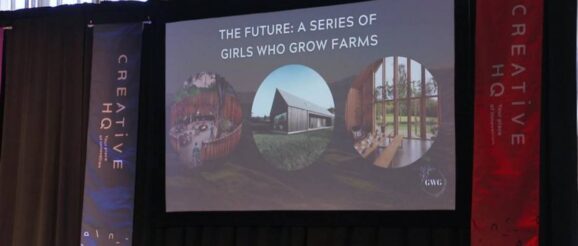Innovation programme incorporated to help bring change to the tech sector and beyond – NZ Herald

Boosting rangatahi engagement and supporting young women into sustainable agriculture careers are among the issues that 14 projects have tackled in New Zealand’s only government innovation programme
The GovTech Accelerator, delivered by Wellington’s Innovation hub Creative HQ, is a 13-week programme aims to foster collaboration, advance participants’ innovation abilities, and expedite projects that address some of Aotearoa’s most pressing problems.
General manager Jonnie Haddon says some other projects she has been looking forward to are those that include helping people in prison and stripping prejudice or bias built into the education system.
“We’ve got projects this year that look at youth, environment, and some really social projects, which have been amazing. From NGO start-ups and government, getting that weave together has been really cool to see.”
The Creative HQ opened up spaces for startups and non-governmental organisations (NGOs) looking to collaborate with the government – one with a particular focus on youth well-being called Awhi Analytics, a start-up tech company based in Tai Rāwhiti.
/cloudfront-ap-southeast-2.images.arcpublishing.com/nzme/6ZZ4D44UT5DNRMT4U5YFHMMOVM.jpg)
Awhi Analytics’ Debs Hancock says, “We’ve been building digital communication channels for rangatahi to communicate how they’re going through different youth development programmes and give feedback. It gives the programme facilitators a chance to monitor their well-being and incorporate that real-time feedback into their programme delivery.”
Livi Taufao says Ngā Mihi “aims to provide social services to people in prison so things like underwear, socks, shoes. It’s a real difficulty to get them inside so we wanted to streamline that service from six to three months down to two weeks.”
Siosaia Maka says Ngā Mihi wants to change the current Corrections process. “It has been in place for a long time, and it has never changed. Just trying to make those changes and make the process better. There’s a lot of process we got to go through and permissions.”
Tech is even being used to redesign the support provided to adolescents in foster care.
“We’ve been working in the area of intensive foster care for rangatahi who have been let down by the adult system,” Te Waka Redesign’s David Hanna says. “So we really want to see how we can re-design that process which has the whānau and the rangatahi more actively leaders in it.
“It’s an opportunity to do some robust thinking and reflection.”
The Ministry of Primary Industries (MPI) has a target to fill 50,000 skilled new roles by 2025 and see more youth and women come into the industry.
